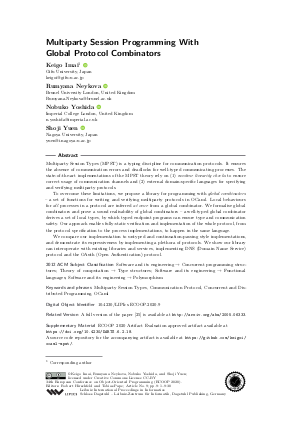LIPIcs.ECOOP.2020.9.pdf
- Filesize: 0.9 MB
- 30 pages

 Creative Commons Attribution 3.0 Unported license
Creative Commons Attribution 3.0 Unported license










Feedback for Dagstuhl Publishing